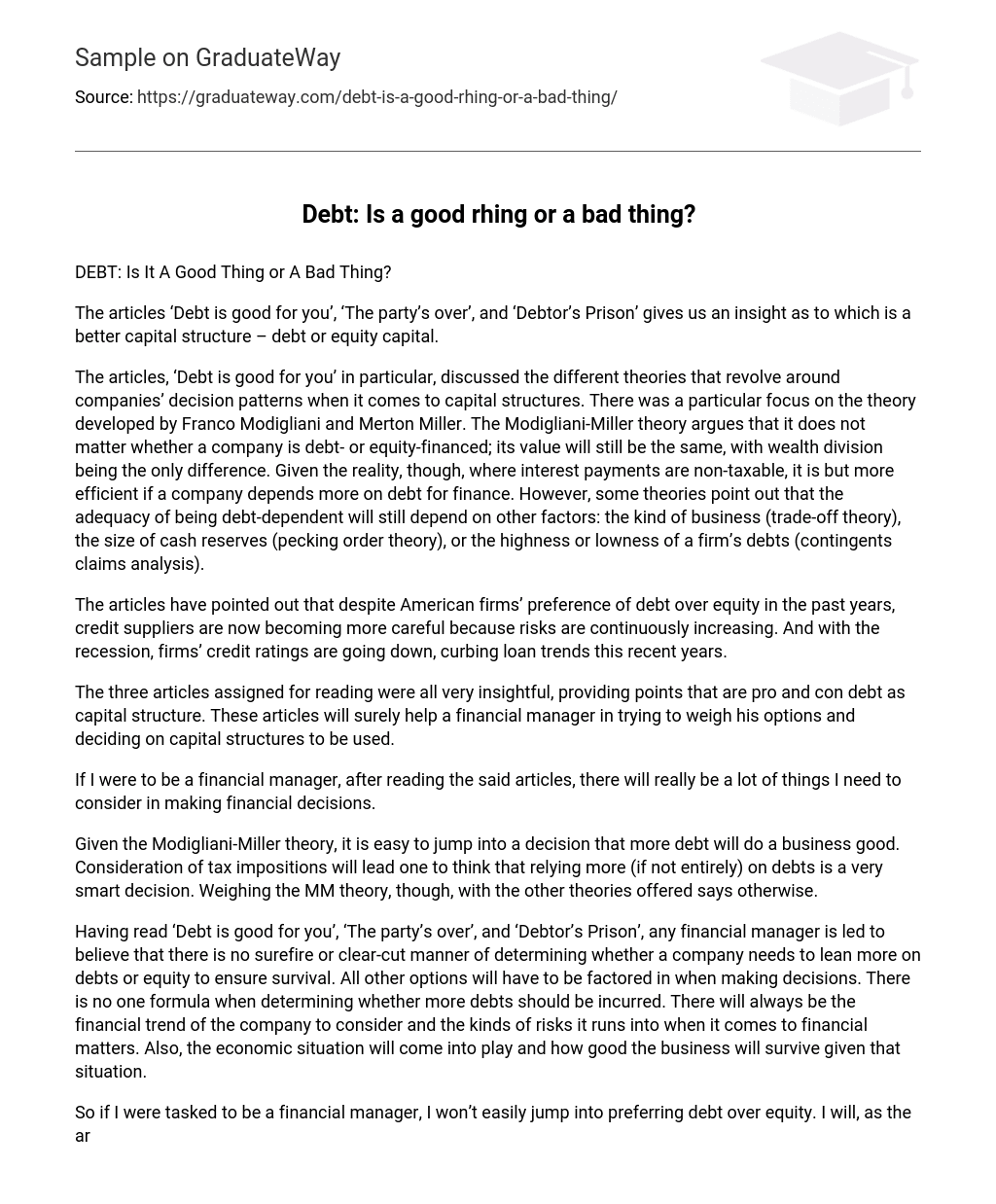The articles ‘Debt is good for you’, ‘The party’s over’, and ‘Debtor’s Prison’ gives us an insight as to which is a better capital structure – debt or equity capital.
The articles, ‘Debt is good for you’ in particular, discussed the different theories that revolve around companies’ decision patterns when it comes to capital structures. There was a particular focus on the theory developed by Franco Modigliani and Merton Miller. The Modigliani-Miller theory argues that it does not matter whether a company is debt- or equity-financed; its value will still be the same, with wealth division being the only difference. Given the reality, though, where interest payments are non-taxable, it is but more efficient if a company depends more on debt for finance. However, some theories point out that the adequacy of being debt-dependent will still depend on other factors: the kind of business (trade-off theory), the size of cash reserves (pecking order theory), or the highness or lowness of a firm’s debts (contingents claims analysis).
The articles have pointed out that despite American firms’ preference of debt over equity in the past years, credit suppliers are now becoming more careful because risks are continuously increasing. And with the recession, firms’ credit ratings are going down, curbing loan trends this recent years. The three articles assigned for reading were all very insightful, providing points that are pro and con debt as capital structure. These articles will surely help a financial manager in trying to weigh his options and deciding on capital structures to be used. If I were to be a financial manager, after reading the said articles, there will really be a lot of things I need to consider in making financial decisions.
Given the Modigliani-Miller theory, it is easy to jump into a decision that more debt will do a business good. Consideration of tax impositions will lead one to think that relying more (if not entirely) on debts is a very smart decision. Weighing the MM theory, though, with the other theories offered says otherwise. Having read ‘Debt is good for you’, ‘The party’s over’, and ‘Debtor’s Prison’, any financial manager is led to believe that there is no surefire or clear-cut manner of determining whether a company needs to lean more on debts or equity to ensure survival. All other options will have to be factored in when making decisions. There is no one formula when determining whether more debts should be incurred. There will always be the financial trend of the company to consider and the kinds of risks it runs into when it comes to financial matters. Also, the economic situation will come into play and how good the business will survive given that situation.
So if I were tasked to be a financial manager, I won’t easily jump into preferring debt over equity. I will, as the articles suggest, be smart and look at every other factor before making any big decisions regarding financial states. Debt is not necessarily a bad thing. It is, as these articles point out, an essential tool for businesses’ survival. However, it should be balanced with equity to ensure that risks are cancelled out.





